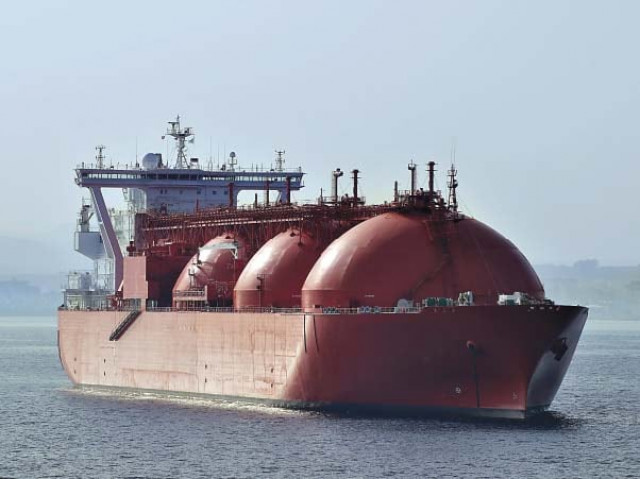Energy crisis: Govt to re-start Mashal LNG import project
Law ministry gives go-ahead for fresh bids.

As private liquefied natural gas (LNG) suppliers demand payment guarantees in violation of LNG policy, the government has decided to re-initiate Mashal LNG integrated import project on a fast track after the law ministry lent its support to the plan, sources say.
The project may not be called Mashal this time, but it will be similar to another project under which the government may give payment guarantees to LNG suppliers and gas distribution companies – Sui Northern Gas Pipelines Limited (SNGPL) and Sui Southern Gas Company (SSGC) – will inject imported gas into their pipelines.
Under the Mashal project, private parties will be invited to submit bids for setting up an LNG terminal and secure supply of 500 million cubic feet per day (mmcfd) of gas.
Importers are set to supply LNG at $18 per million British thermal units (mmbtu) and now the government is trying to secure supplies at cheaper rates.
According to a senior official of the Ministry of Petroleum and Natural Resources, the government is expected to accept bids of those LNG suppliers that offer a price equal to 80% price of furnace oil.
The government is also likely to offer a charge of 50 cents per mmbtu to the company which will set up LNG floating storage and re-gasification units.
Earlier under the Mashal project, the Economic Coordination Committee (ECC) of the cabinet awarded a contract for import of 3.5 million cubic feet of LNG per annum to French company GDF-Suez and Dutch firm 4Gas, which also had to set up an LNG terminal. But the petroleum ministry did not table proposal of another interested party – Vitol/Fauji Foundation consortium – in the meeting, which sparked controversy and the case landed in the Supreme Court.
The court asked the government to seek fresh approval from the ECC by considering proposals of both 4Gas and Vitol/Fauji Foundation. The petroleum ministry placed the matter before the ECC on January 25, 2011 in light of the opinion of the law ministry, which called for cancelling the deal with GDF and 4Gas and inviting fresh bids.
Later, the government decided in February 2011 to re-float tenders for the Mashal project, but a petition, filed in the Supreme Court challenging the invitation of fresh bids, blocked the move.
“Now, the law ministry has again supported the proposal,” an official of the petroleum ministry said, adding the project would be tabled before the ECC for a decision.
In the second LNG import project, the Oil and Gas Regulatory Authority (Ogra) has awarded licences to three private-sector parties including Global Energy, Pakistan Gas Port and Engro Corporation. Ogra has allocated pipeline capacity of gas distribution companies for supply of 1.4 billion cubic feet per day (bcfd).
However, officials said, Turkish firm – Global Energy – sought government guarantees for payments against LNG supplies. Other LNG importers have also failed to find gas buyers and asked Sui companies to buy gas from them.
The petroleum ministry official said these conditions were against the spirit of the new LNG Policy 2011. “In addition to this, progress of these LNG suppliers is very slow, prompting the government to re-initiate the Mashal LNG project,” the official said, adding, however, these private-sector suppliers would also be able to participate in the Mashal project.
He said the government wanted to secure LNG supplies from three sources – Mashal LNG project, private-sector parties that have already been allocated pipeline capacity and imports from Qatar through a government-to-government contract.
“The petroleum ministry will float a tender to invite companies to participate in the bidding for LNG import and set up a terminal after the ECC gives the go-ahead,” the official said.
Published in The Express Tribune, March 24th, 2012.


















COMMENTS
Comments are moderated and generally will be posted if they are on-topic and not abusive.
For more information, please see our Comments FAQ